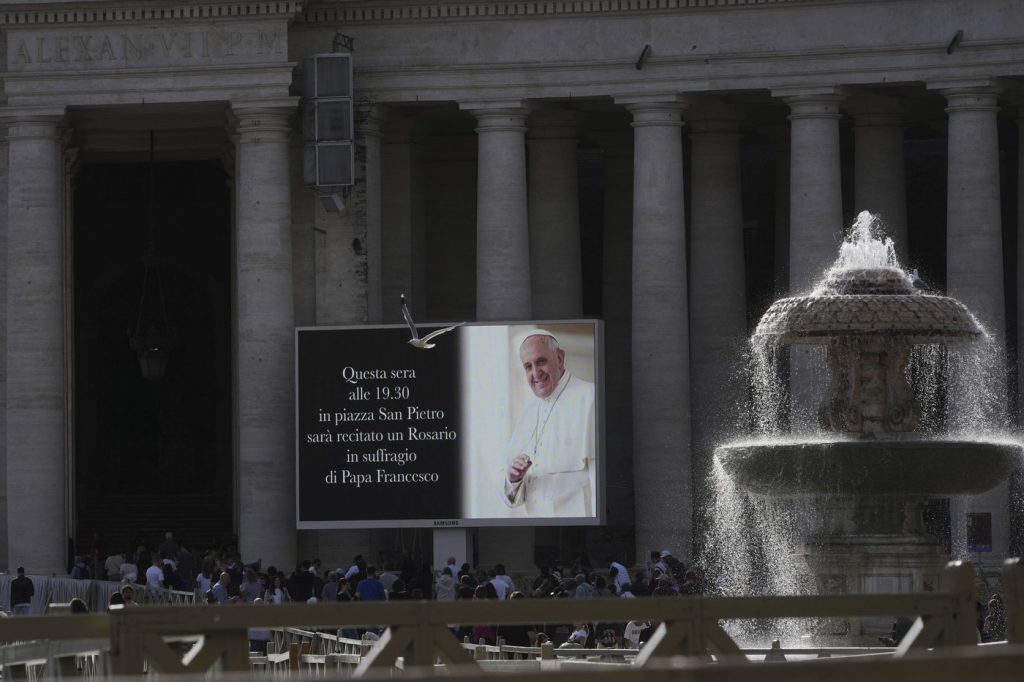MONTREAL Following the death of Pope Francis at the age of 88, discussions regarding the potential successors have commenced, particularly focusing on Canada's five cardinals. While one Canadian cardinal was a strong contender in the previous papal election, experts believe that the current crop of Canadian cardinals faces significant hurdles that make their ascension to the papacy unlikely.
According to Mark McGowan, a history professor at the University of St. Michael's College in Toronto, none of Canada’s five cardinals are in the top tier of candidates for the papacy this time around. Concerns include advanced age, allegations of sexual misconduct, and varying levels of experience. “I would be quite surprised if one of them was elected,” he stated.
The Vatican made the announcement on April 21, 2025, that Pope Francis had passed away after leading the Catholic Church for 12 years. The late pontiff had faced significant health challenges, including a five-week hospitalization for pneumonia earlier in the year.
Emma Anderson, who teaches religious studies at the University of Ottawa, highlighted that Cardinal Gérald Lacroix, the archbishop of Quebec, stands the best chance among Canadian cardinals to succeed Francis. Lacroix was elevated to the cardinalate in 2014 and appointed to Francis's council of cardinal advisers in 2023. At “a very youthful 67,” he is notably younger than Francis was at his election, having been 76.
Despite this, Lacroix faces challenges stemming from a class-action lawsuit naming him in allegations of touching a 17-year-old without consent during the late 1980s. Although a church investigation found no evidence of wrongdoing, Anderson noted that the mere suggestion of impropriety can hinder a candidate's prospects.
Another influential Canadian cardinal, Marc Ouellet, was previously seen as a front-runner in 2013 to replace Pope Benedict XVI but has also been implicated in the same class-action lawsuit, where he was accused of inappropriate touching, a claim he denies. Ouellet, who served in a key role overseeing bishop appointments until his retirement in 2023, has reached the age of 80, disqualifying him from voting in the conclave but still allowing for the possibility of being elected pope.
The other two Canadian cardinals, Thomas Collins and Michael Czerny, are also nearing 80. Collins, 78, a former archbishop of Toronto, may be too conservative to attract votes from the electors appointed by the more liberal Francis. In contrast, Czerny, also 78, is closely associated with Francis’s social justice initiatives but faces similar age-related concerns about his eligibility.
The only Canadian cardinal below the age of 80 is 53-year-old Francis Leo, the current archbishop of Toronto. Nonetheless, both McGowan and Anderson pointed out that Leo lacks the experience typically favored in papal candidates, making him less likely to be a contender in the upcoming conclave.
With 252 cardinals alive, only 135 are eligible to vote. Notably, 80% of the electors were appointed by Pope Francis. McGowan suggested that the next pope will likely reflect the characteristics of Francis, prioritizing candidates who exhibit pastoral qualities and multilingual skills.
Potential front-runners identified by experts include Cardinal Luis Antonio Tagle from the Philippines, who at 67 is viewed as a continuation of Francis’s legacy, and Cardinal Pietro Parolin, the Vatican's secretary of state, aged 70. This conclave is expected to be historically significant, as it will not have a majority of European electors, a shift that could influence the direction of the Catholic Church.
Anderson emphasized the importance of this diversity, suggesting that while liberal factions may hope for a candidate from the Global South, many regions in this category, such as Africa and Asia, hold more conservative theological views. Such dynamics create a complex environment for the future direction of the Catholic Church under a new pope.











